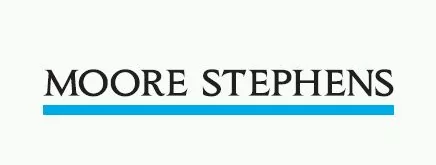The Dodd-Frank Wall Street Reform and Consumer Protection Act, to give it its full title, is somewhat wider ranging than to affect just institutions on Wall Street.
The basic premise of the act is that closer order is being taken on fund managers and advisors as it requires those who advise US investors on securities to register with the US Securities and Exchange Commission (SEC) irrespective of the location of their place of business.
This will have an impact on those advisors and managers who previously took advantage of the 'Private Investment Advisor' exemption.
It applies to all who charge fees for advising on the buying and selling of securities and so can apply to fund advisors where the acquisition of securities is a bi-product of activities even though the core assets that they deal with may not be.
Registration requirements
The act requires those investment advisors who fall within its remit to register with the SEC by the 21 July 2011.
In brief, the act requires the registered entities to maintain a compliance programme and a code of ethics as well as certain books and records. They will also be subject to custody rules and be required to face SEC examination and fulfil certain reporting requirements.
Possible exemptions
There are exemptions from having to register, the primary of which, for non-US practitioners is the Foreign Private Advisor (FPA) exemption.
Under the FPA exemption, an advisor need not register if they have no US place of business, no more than 14 US customers in total, less than $25m of assets under management for those US clients and investors and does not carry out any marketing activities in the US.
There are other exemptions including a Venture Capital Fund Advisor exemption, a family office exemption and Private Fund Advisor exemption for those with less than $150m of assets.
The way forward
It would be advisable for all investment advisors and managers to introduce procedures to assess the impact they have with US investors to see whether they currently are, or in future will become, subject to the need to register and, where necessary, seek advice from fund services professionals. We, of course, will be happy to help with this process.
The Foreign Account Tax Compliance Act (FATCA)
Another piece of US legislation that may have an effect in offshore jurisdictions is FATCA, which requires all foreign financial institutions, including investment funds, to enter into an agreement with the Internal Revenue Service to disclose information on their investors whether they are either US individuals or US owned entities.
Failure to do so will result in a 30% withholding tax being applied in the US on any 'withholdable' payments to non-US institutions whether they hold US assets or not.
The full provisions of this act are due to be introduced at the beginning of 2013. Preparation will be the key to ensuring proper compliance and removing the risk of withholding tax being applied.
We will keep you informed of developments over the coming months.
Is there anything else on the horizon?
The AIFMD, Dodd-Frank and FATCA are all symptomatic of the desire by governments and regulators to ensure we do not have the lapses in regulation, perceived or otherwise, that played a part in the financial crisis of 2008, the effect of which will continue to be felt for some time.
There will no doubt be further regulatory changes in the future, for example, there is some talk of the provisions of Dodd-Frank being expanded to other asset classes such as direct real estate.
These changes should not present a barrier to growth for quality funds service providers in properly regulated financial centres such as Jersey and we are confident that any changes will be met positively by the industry.
The content of this article is intended to provide a general guide to the subject matter. Specialist advice should be sought about your specific circumstances.

